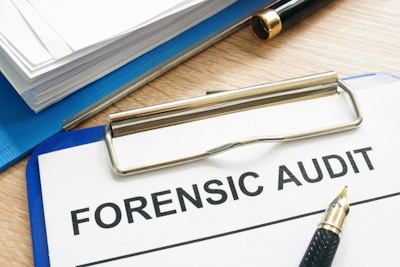Get clued-up in accountancy

Fancy yourself as a Sherlock Holmes or Miss Marple super sleuth?
Part detective, part number cruncher, the role of Forensic Accountant is highly specialised. It demands finely tuned analytical skills to investigate who might have to be put on the naughty step because of financial discrepancies, fraud, misconduct, disputes or inaccuracies in business and personal finance reporting.
It’s a challenging job that involves meticulous and thorough research – and so requires an inquisitive and organised mind. While ‘ordinary’ accountants help clients balance the books and present accurate financial records, Forensic Accountants get right to the heart of how and why irregularities appear.
The need for forensic accounting is quite simple: some businesses and individuals conduct what can be described at best as dodgy deals and need to be held accountable. The need is also quite pressing: the demand for Forensic Accountants has grown in the past decade, largely as a response to the 2008 global financial crisis – and, as the financial world becomes ever more complex due to the uptake of new technology, it’s expected jobs in this niche sector will continue to grow.
So get your calculator, magnifying glass and best business suit ready! Typical tasks performed by a Forensic Accountant include analysing financial data and preparing related documents and spreadsheets, tracing funds and identifying assets, conducting interviews to identify relevant information and preparing statements for legal proceedings.
These skills can be brought to bear in many areas, including commercial litigation, criminal investigations, shareholder and partnership disputes, as well as personal injury and insurance claims.
Essentially all of these missions will involve detective work to identify clues that lie hidden in financial documents and reports.
Your work will help build the bigger picture that can show what’s been happening with the books, quantify losses or even recover missing funds.
Are you a fan of legal eagle TV dramas Suits or The Good Wife? Perfect! Because it’s not uncommon for Forensic Accountants also to be asked to present their evidence and testify in a court.
So who would you be investigating? The simple answer is anyone who deals with money. From individuals to small companies to global enterprises, Forensic Accountants are at liberty to examine the documents of anyone suspected of financial misconduct.
For this reason, there are numerous organisations and agencies who will be knocking at your door, keen to employ your services. From banks to governments to police forces to insurance firms . . . there are plenty of opportunities for skilled analysts to find diverse and rewarding positions in the sector.
Many big businesses also employ in-house Forensic Accountants in the interests of preventing internal fraud and promoting greater financial transparency.
So how do you get started? Surprisingly, a degree in accountancy isn’t always needed – although, of course, it does help. People from a variety of backgrounds and disciplines can become a Forensic Accountant, as long they obtain a recognised professional qualification. Many universities in the UK offer specialised undergraduate and Masters programmes in the field.
As well as being eagle-eyed and organised, it’s vital prospective Forensics are methodical, IT-adept, naturally creative and able to pass sound, unbiased judgements.
You should also be an excellent communicator, as you’ll frequently liaise with clients and third-party organisations who may not be as numbers-savvy as you are. It’s likely you’ll also have to present your findings to senior managers, so being able to convey your findings in ‘easy speak’ is also important. In fact, it’s elementary!
A career in forensic accountancy represents a serious intellectual challenge, but that’s why it’s so satisfying. There’s very little chance you’ll ever become bored.
In terms of salary, newbies and recent graduates can expect to earn upwards of £24,000. The average salary in the UK is around £40,000 but earning potential is excellent in this sector of financial services and more experienced Forensic Accountants can command earnings of upwards of £70,000 per year.
Search now for all Accountancy jobs!
Posted on December 4, 2019
Topics
Recent
- <strong>How to Become an IT Professional in England: Qualifications and Skills for the Role</strong>
- How to Email Your CV: A Guide for Jobseekers in England & Wales
- Exploring Rewarding Careers in the Third Sector and Further Education in England
- Setting up your first LinkedIn profile
- Dealing with the ‘Summer Scaries’
- Unlocking Career Success: How to Make the Most of Jobs24
- Common questions asked in an interview and how to answer them
- Questions to Ask at the end of an Interview
